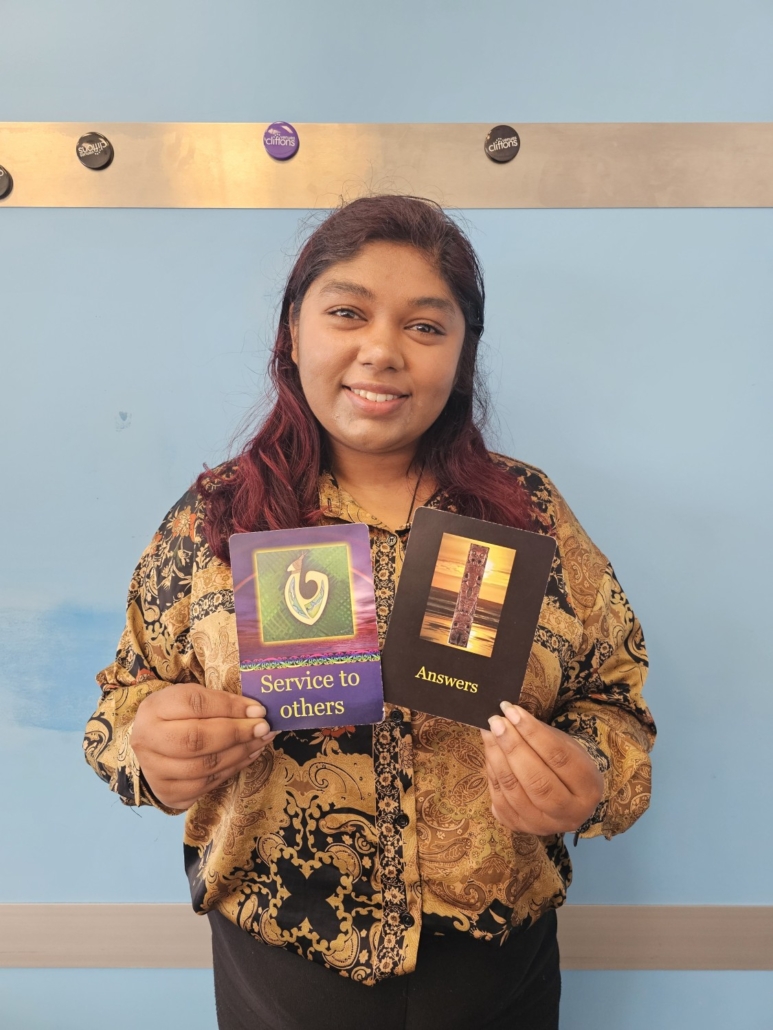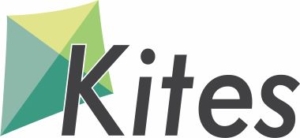Our CEO’s Reflection on her first year at Kites
Written by: Serena Lal, Chief Executive
Nearly a year ago, I stepped into the role of CEO at Kites Trust. At the time, it felt too soon to introduce myself—I wanted to ensure I had genuinely contributed to my organisation and community before sharing my story. Now, with a year of learning and transformation behind me, I’m ready to reflect on this journey and what it has taught me.
Ko Serena tōku ingoa
I am a descendant of the Girmityas—indentured labourers taken from India to Fiji—and I grew up in Tāmaki Makaurau. My career has been shaped by incredible mentors, aunties, and leaders who have guided me along the way. As the eldest daughter in my family, leadership has been ingrained in me from an early age.
Before joining Kites, I worked as a Principal Service Designer in government while also running a consultancy focused on reimagining organisations and services through co-design—centering liberation and community power. My passion has always been enabling communities to design and deliver their own ideas into action, and I feel honoured to have built a career around this vision.
I am also the founder of IndigiShare, a fintech organisation, and a proud Tangata Tiriti committed to supporting Asian and BIPOC communities in actively showing up for solidarity in Aotearoa. Outside of work, I find joy in baking, cooking, ideating—and being a hoha and tutu in all creative things.
As a Tangata Whai Ora and disabled person, I have leaned on the support of my community while also caregiving for others. My experience with mental health has shaped my perspective—often seeing services as oppressive rather than restorative. In a society shaped by systemic racism, much of my journey has been spent navigating my own madness in isolation.
At my core, I am a multi-passionate entrepreneur working at the intersection of collective liberation, creativity, play, systems change, and innovation.
Why Kites?
Kites Trust exists to enable a mobilised, resourced, and connected Tangata Whai Ora community in Pōneke—one that creates from its own strengths while holding accountability in its pursuit of Mauri Ora. At the same time, we recognise the systemic oppression, harm, and deep collective trauma that exists. Tangata Whai Ora are uniquely attuned to these realities, and as an organisation, we must work across multiple approaches to deliver meaningful services and spaces for growth and healing.
Kites has always been an “organisation of requirement”—a think tank that adapts to the needs of its community while upholding peer leadership, human rights, and innovation in community development.
Lessons from My First Year
Leading an organisation committed to deep and healing work is emergent and messy. It takes continuous effort to cultivate, structure, and protect processes that restore wellbeing and drive systemic change. Co-designed and co-delivered work requires embracing imperfection, accountability, and collective healing. Here’s what I’ve learned so far:
Every voice holds wisdom. Every employee, every community member, every interaction offers lessons on how we can improve Kites. Imperfection is inevitable, but when approached with accountability, learning, and action, it becomes a valuable opportunity. In complex systems, outward signs of struggle often point to deeper, underlying symptoms—never take them at face value.
Solidarity is built through lateral bonds. Leadership means being treated differently, but frustrations directed at me often reflect broader dissatisfaction. I prioritise partnership—defining collective expectations while ensuring leadership enables solutions. This includes fostering leadership at all levels so Tangata Whai Ora can navigate conflict without relying solely on formal management structures. At the heart of this is creating a community culture that does not centre trauma alone.
Balancing strength and softness build trust. Leadership demands resilience, but it also requires vulnerability—especially when engaging with reactivity. Genuinely investing in the gifts of my team means that accountability and repair must be foundational.
Growth is accountability. Allowing behaviours that disrupt kawa or community erodes trust. Growth is about persistence—not perfection.
Honour self-determination. Peer work isn’t about “saving” people—it’s about supporting them as they choose to show up for themselves, with the backing of their community. We must respect the limits of what someone is willing to take on. Acceptance allows us to act from love, even when paths diverge.
Move at the pace of our nervous system. Growth happens when we foster environments where people feel informed, safe, and empowered. This energetic aspect is crucial for innovative and co-design work.
Plain language fosters shared understanding. At Kites, we continuously refine our communication to ensure that every document, message, and interaction serves as a learning moment. Culture isn’t inherited—it’s actively created.
Capacity is everything. Designing roles that allow time for reflection, strategic thinking, and self-initiated projects are essential. Trust is high, but it’s the only way to shift out of reactive and sacrifice-based ways of working.
Looking Ahead
Leadership isn’t about having all the answers—it’s about committing to the journey, listening deeply, and evolving alongside the communities we serve. My first year at Kites has reinforced the importance of holding complexity, embracing imperfection, and building spaces that prioritise both healing and innovation.
As Kites continues to grow, I remain committed to ensuring our work is grounded in co-design, collective liberation, community power, and transformative change.


Leave a Reply
Want to join the discussion?Feel free to contribute!